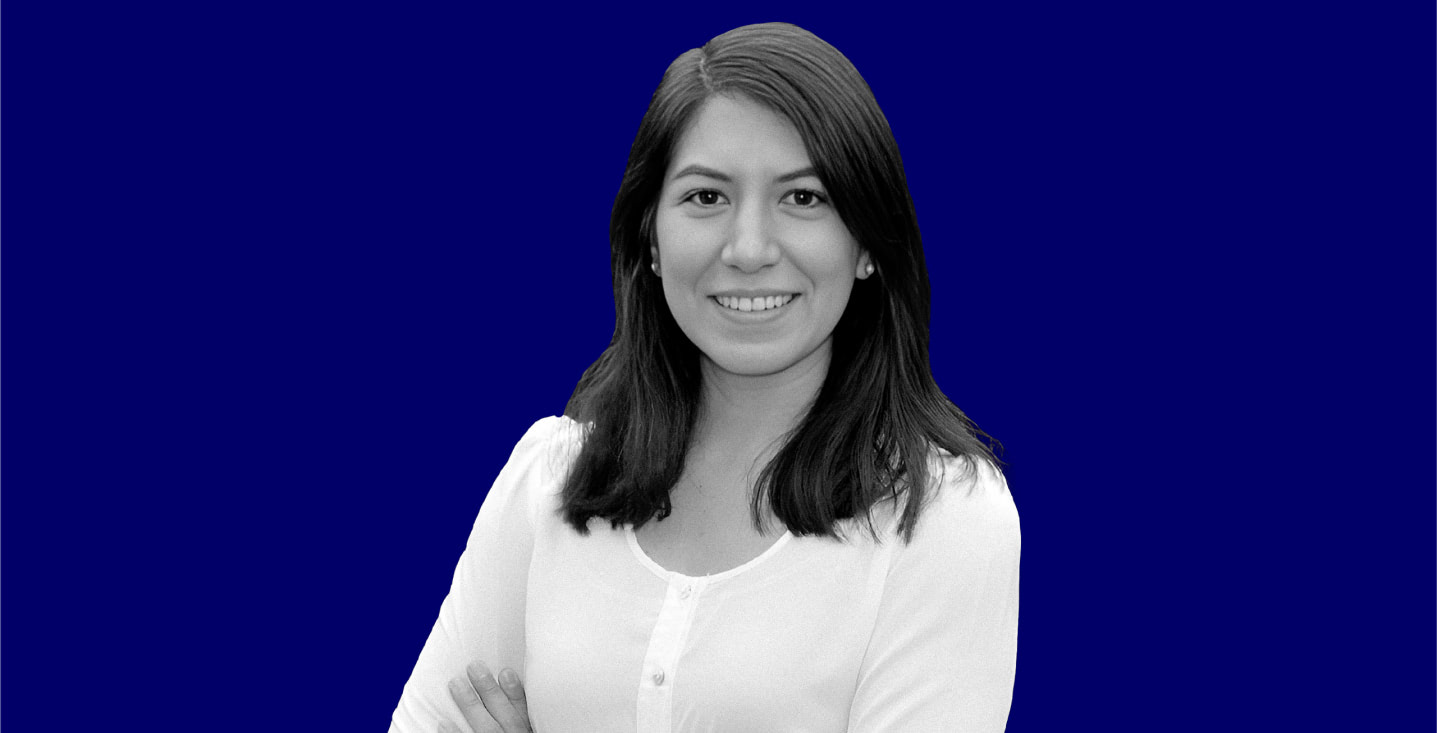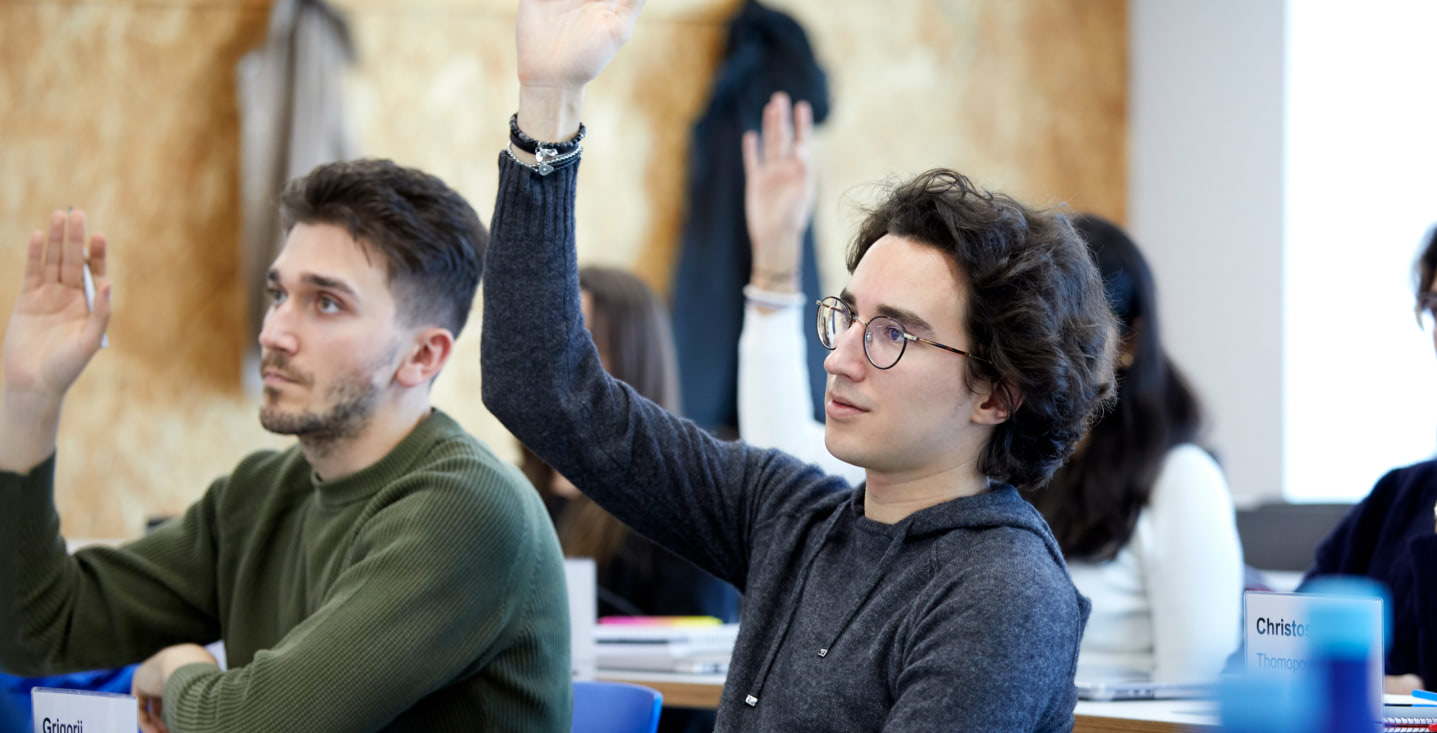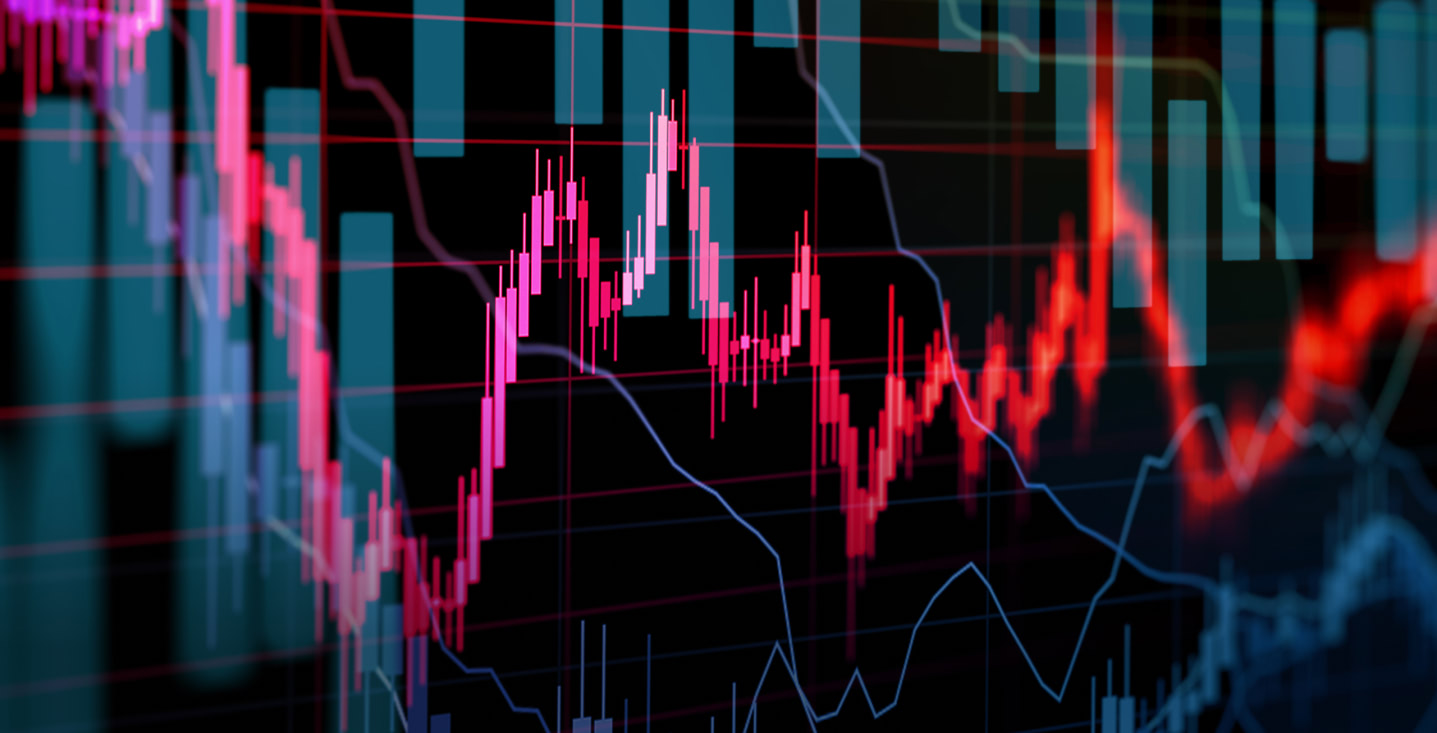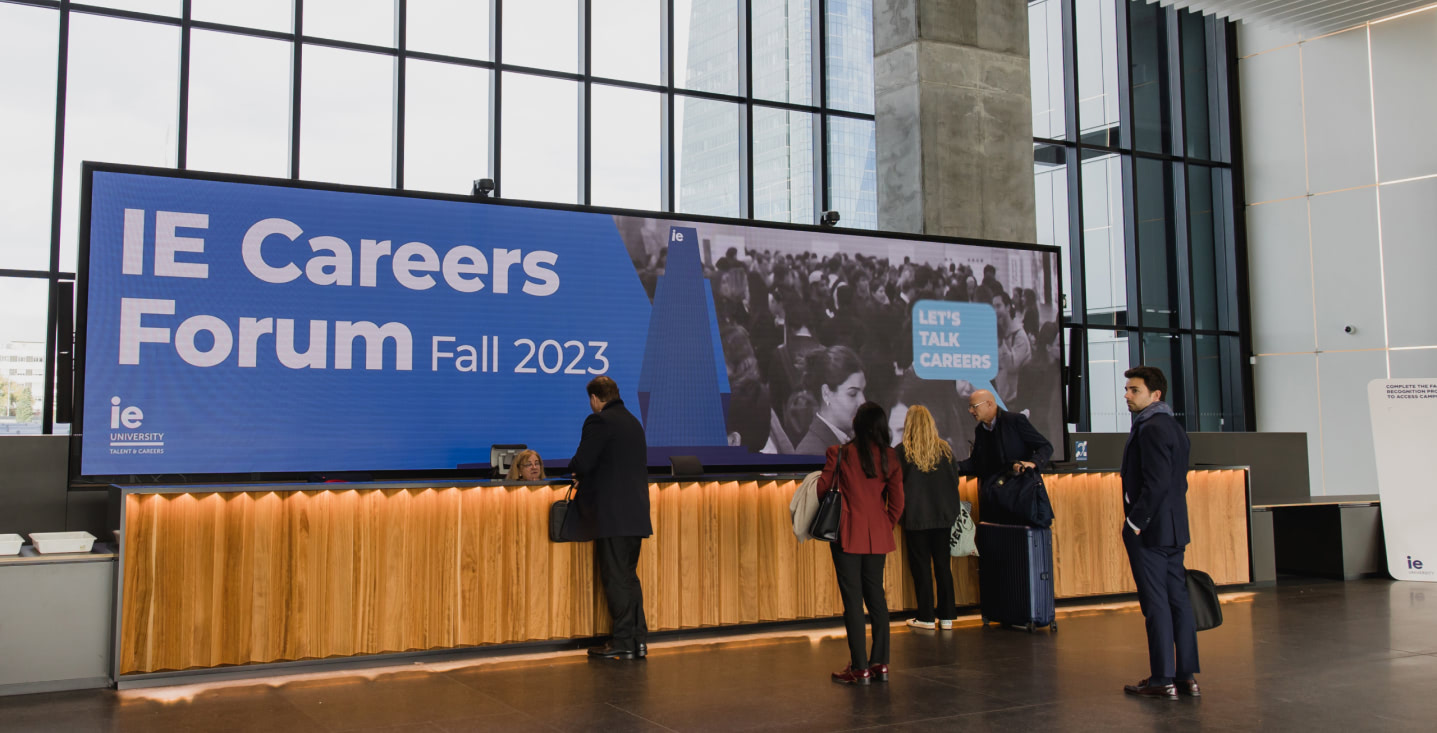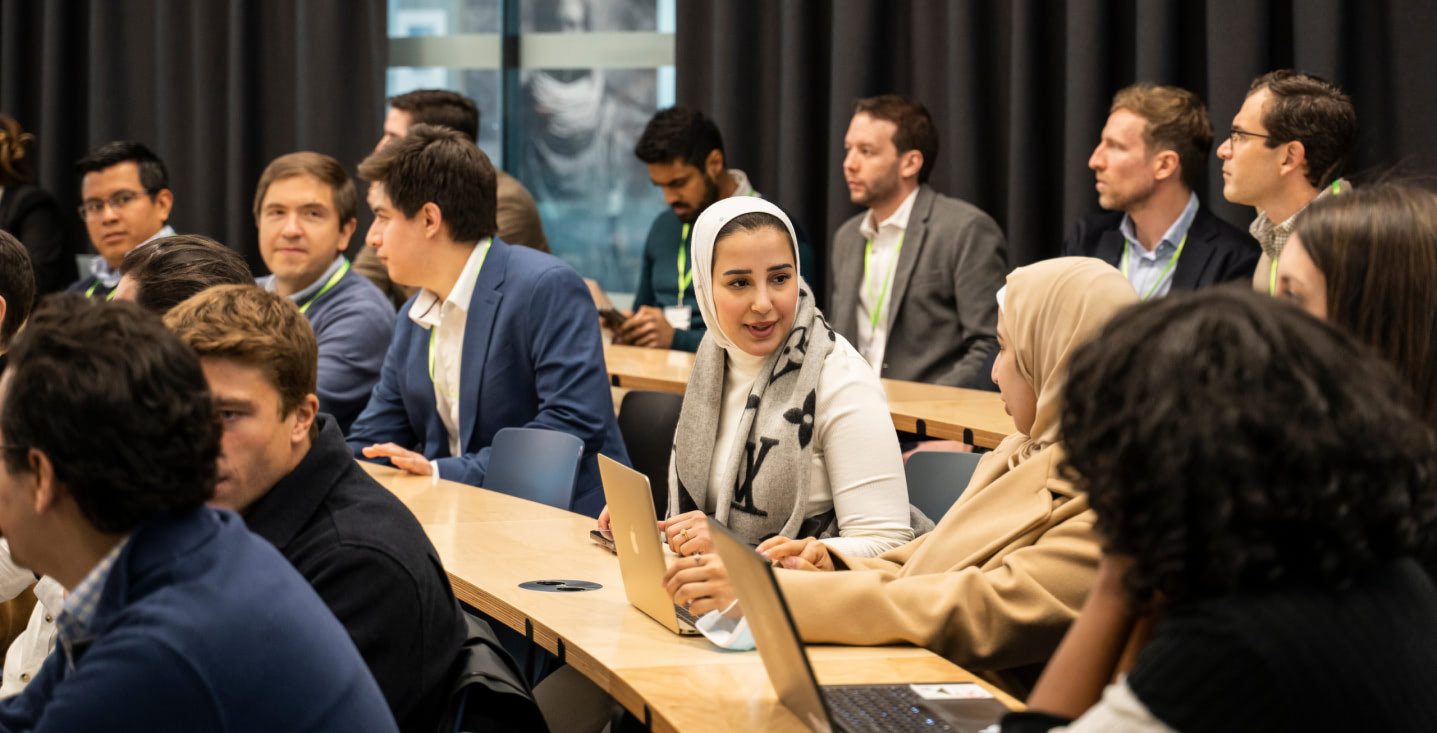21/03/2023
Co-designed with the United Nations System Staff College, our Master in International Development and Executive Master in International Development provide students with the opportunity to discover and drive positive change in the world around them, while preparing to tackle the challenges of tomorrow.
We recently held an info session with the United Nations System Staff College (UNSSC) to showcase both our Master in International Development and Executive Master in International Development. Those present were able to learn about the master’s programs from Paula Heras, senior manager of global recruitment at IE University; representatives from the UNSSC, including Jafar Javan and Simona Costanzo Sow; and alumni of the program. Both alumni of the Master in International Development shared what their experience was like studying at IE University and how the collaboration with UNSSC propelled them into the next phase of their careers.
According to Dr. Javan, the Director of UNSSC, the state of global affairs is one that is constantly changing. All aspects —whether they be social, economic, political or technological—are changing rapidly and information, as well as disinformation travel faster than ever. Addressing today’s challenges requires new approaches to complexity, identifying strategic entry points for interventions, harnessing data and digital tools, as well as strategic communication and engaging all groups in society to become part of the effort. This changes the way multilateral organisations work in fundamental ways. IE University and the UNSSC kept this in mind when designing both programs, which focus on preparing their students to be professionals capable of adapting to the constantly changing demands of their chosen field.
Designing the Master in International Development and the Executive Master in International Development was a mutual effort between IE University and the UNSSC which has been met with huge success. Within just a couple of years, enrollment for the Master in International Development doubled—a testament to the program’s excellence.
At the heart of both programs is the goal to give students the skills required to better understand the world.
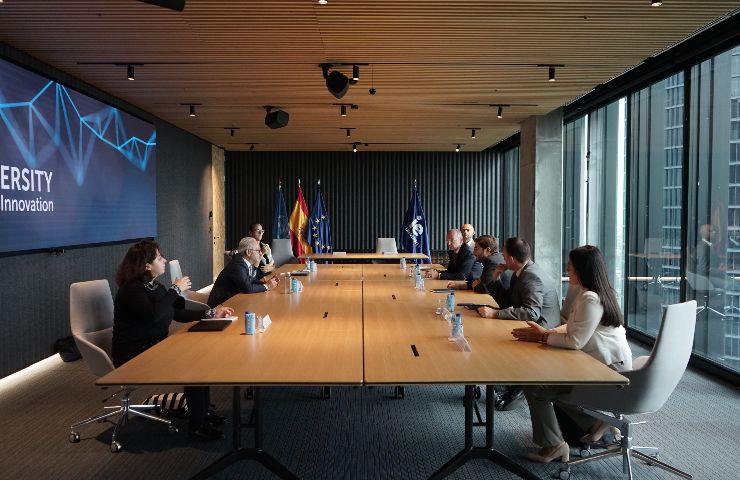
Dr. Sow, who acts as the academic focal point for UNSSC, highlighted how the Master in International Development was designed with the United Nations’ 5 P’s in mind: People, Planet, Prosperity, Peace and Partnership. The goal of this specific curriculum is to “allow the next generation of leaders in the multilateral sphere to approach sustainable development from a holistic perspective.” The Executive Master, which aims at mid to senior level professionals, has a particular focus on the UN’s Common Agenda with its Quintet for Change.
While we may traditionally separate the world into developed and developing nations, Simona emphasized that every country has a role to play to achieve sustainable development, by providing quality of life for its citizens, within planetary boundaries and without harming the ability of other countries to do the same.
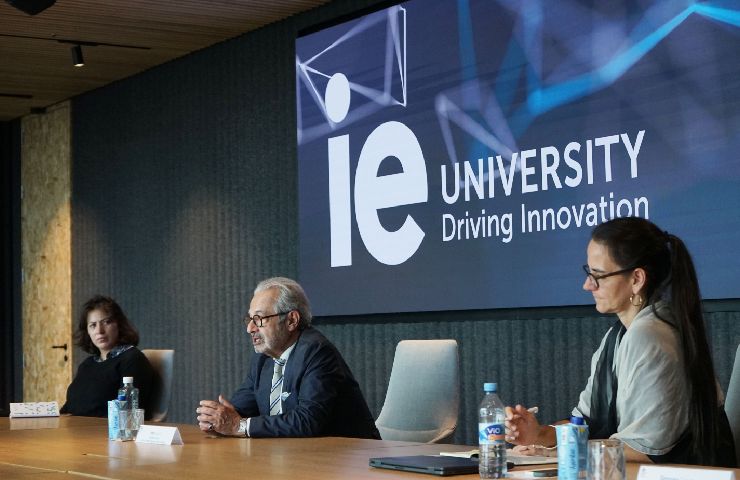
Looking at sustainable development from a universal perspective, as both programs do, is especially relevant in the face of climate change and in the context of the 2030 Agenda.
The session’s keynote speakers, Jafar and Simona, also took the time to explain the differences between the two programs. The Executive Master in International Development in particular is designed for those with existing work experience looking to gain more knowledge and experience within the United Nations system. It aims to help individuals progress to the next level of their careers in order to make a bigger impact. The Master in International Development is tailored to those wanting to pivot or transition their career into international development.
The courses and methodology differ between the two to match the different student profiles of the programs, allowing even those with little background in the field to thrive.
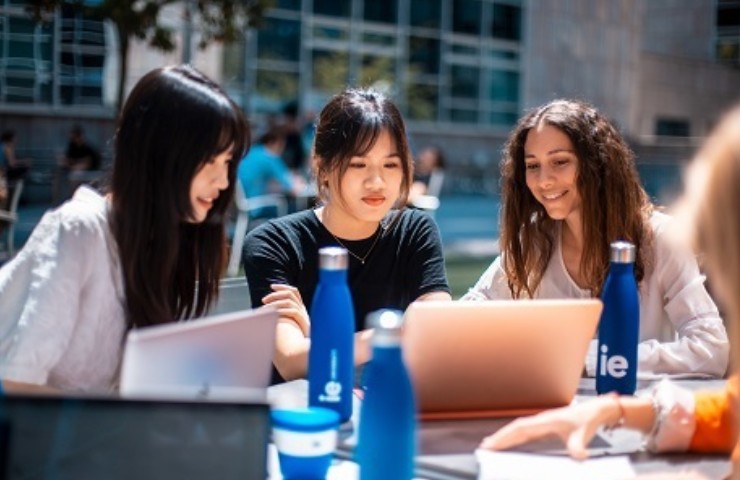
We were joined by two of our alumni who shared how they feel the master’s programs set their lives and careers on a different trajectory. Isild Monfret worked in hotel management before coming to IE University but was inspired to transition into international development after seeing how she could make an impact in the world. During her time in the program, she discovered that international development better aligned with her values—both personally and professionally.
An alum of the first cohort of the Master in International Development, also found his experience at IE University to be beneficial to his career. Having worked in an NGO before, he wanted to gain extra knowledge so that he could combat the increasing complexity of the challenges he would face on a day-to-day basis. He highlighted the hands-on and practical nature of his program, which had a clear influence from the UNSSC.
The info session culminated in a Q&A session with our audience to ask specific questions about the programs and their individual situations.


